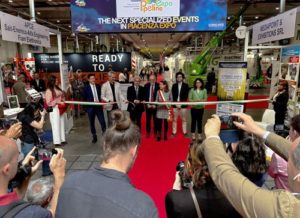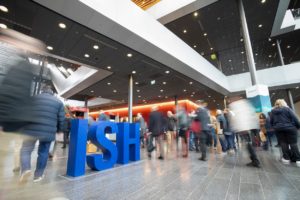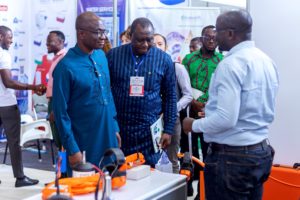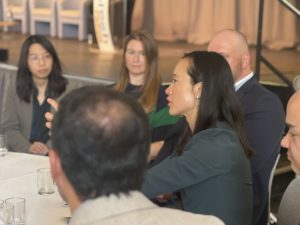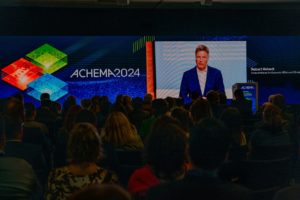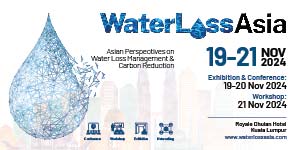Vatis bvba shows its innovations at Pumps & Valves 2002
Bal Seal Engineering will present a new generation rotary seals at the exhibition in Antwerp. Furthermore a new process has been developed for hard facing parts subject to wear. This process, known as LASERCARB, uses energy from a laser beam to coat parts exposed to abrasion.
Bal Seal PTFE rotary seals offer unique advantages over conventional rotary lip seals.
The metal locking ring design securely retains the seal in the gland and prevents leakage over the outer diameter of the seal due to temperature cycling and pressure environments. The metal band also allows the seal to be uncaptivated mounted in the gland at low pressure (the seal is not supported at the back of the seal). This simplifies installation and reduced production costs.
Depending on the type of application Bal Seal uses its patented canted coil spring as seal energizer. The canted coil spring keeps a near-constant load despite changes in deflection, typically caused by wear, changes in temperature and tolerance variations. This means that the sealing reliability is not compromised by seal wear or differences in seal compression.
A decrease in spring deflection caused by the seal wear translates into a minor loss in spring force. Other sealing systems rely in a high initial load to make up for eventual material wear. The spring-energized PTFE seal maintains its near-constant spring force start to finish.
The LASERCARB hardfacing process: a continuous CO2 laser, with an output of 5 kW, generates a beam, the energy of which is used to melt the powdered filler metal.
A special coaxial nozzle supplies the powder and a 4- axis CNC machine is used to apply precise reproducible coatings on parts which are moved in relation to the laser beam. Complete surface coverage is obtained by partial overlapping of the beads.
Our own cast tungsten carbide powders Spherotène, which are very pure and very hard (3000 to 4000 HV) are used. These powders, spherical or crushed to suit different applications, alloyed with nickel- based metal powders which serve as a matrix, provide surfaces with excellent abrasion and erosion resistance and also very good corrosion resistance.
The advantages of the LASERCARB process: coatings obtained by laser are metallurgically bonded to the parent metal and are 100% dense (i.e. non- porous). The LASERCARB process thus eliminates the problems of scaling and non- adherence typical of plasma surfacing techniques.
LASERCARB eliminates all cracking in coatings.
The very precise control of the energy imparted to the parent metal in the LASERCARB process produces dilutions of less thank 1% of the parent metal in the coating and minimizes or even eliminates any distortion.
The LASERCARB process does not affect the carbide beads. They retain all their intrinsic properties, in particular their extreme hardness and thus give the surface resistance to abrasion.
Tube Systems - Chokes - Nozzles - Valves - Grinders
Pumps and other Plant Equipment Parts with Ceramic and Mineralcast Linings as well as Technical Ceramic Components
Task: the specific use of different high performance ceramics within plants and plant components to provide protection against wear and corrosion under harsh conditions.
Decades of operating experiences in power stations, processing plants, in the pharmaceutical and food industry, in chemical and electroplating facilities, in the medical equipment and in the microelectronics manufacturing have made us to a leader for the products we make.
Features and advantages:
Typical applications:
SiCast
Silicon carbide + Quartz with epoxy as a binder.
This material is cast for pumps, pump liners, pump wearplates, pump housings, pump covers etc.
Hardness: Mohs 9
Excellent chemical resistance
Temperature range up to 190°C
Source: Vatis bvba

